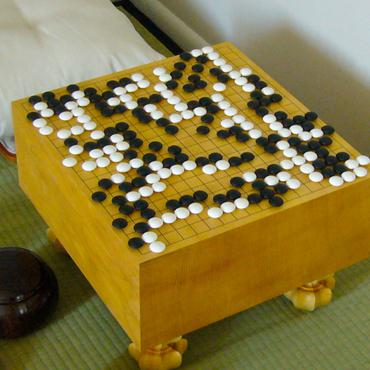Search Results for author: Yusuke Nojima
Found 11 papers, 4 papers with code
Privacy-preserving Continual Federated Clustering via Adaptive Resonance Theory
1 code implementation • 7 Sep 2023 • Naoki Masuyama, Yusuke Nojima, Yuichiro Toda, Chu Kiong Loo, Hisao Ishibuchi, Naoyuki Kubota
In the clustering domain, various algorithms with a federated learning framework (i. e., federated clustering) have been actively studied and showed high clustering performance while preserving data privacy.
A Parameter-free Adaptive Resonance Theory-based Topological Clustering Algorithm Capable of Continual Learning
1 code implementation • 1 May 2023 • Naoki Masuyama, Takanori Takebayashi, Yusuke Nojima, Chu Kiong Loo, Hisao Ishibuchi, Stefan Wermter
In general, a similarity threshold (i. e., a vigilance parameter) for a node learning process in Adaptive Resonance Theory (ART)-based algorithms has a significant impact on clustering performance.
Reference Vector Adaptation and Mating Selection Strategy via Adaptive Resonance Theory-based Clustering for Many-objective Optimization
no code implementations • 22 Apr 2022 • Takato Kinoshita, Naoki Masuyama, Yiping Liu, Yusuke Nojima, Hisao Ishibuchi
Decomposition-based multiobjective evolutionary algorithms (MOEAs) with clustering-based reference vector adaptation show good optimization performance for many-objective optimization problems (MaOPs).
Class-wise Classifier Design Capable of Continual Learning using Adaptive Resonance Theory-based Topological Clustering
1 code implementation • 18 Mar 2022 • Naoki Masuyama, Yusuke Nojima, Farhan Dawood, Zongying Liu
This paper proposes a supervised classification algorithm capable of continual learning by utilizing an Adaptive Resonance Theory (ART)-based growing self-organizing clustering algorithm.
Adaptive Resonance Theory-based Topological Clustering with a Divisive Hierarchical Structure Capable of Continual Learning
no code implementations • 26 Jan 2022 • Naoki Masuyama, Narito Amako, Yuna Yamada, Yusuke Nojima, Hisao Ishibuchi
In addition, for improving information extraction performance, a divisive hierarchical clustering algorithm capable of continual learning is proposed by introducing a hierarchical structure to the proposed algorithm.
Effects of Different Optimization Formulations in Evolutionary Reinforcement Learning on Diverse Behavior Generation
no code implementations • 15 Oct 2021 • Victor Villin, Naoki Masuyama, Yusuke Nojima
To that effect, this paper considers an existing evolutionary reinforcement learning framework which exploits multi-objective optimization as a way to obtain policies that succeed at behavior-related tasks as well as completing the main goal.
Multi-label Classification via Adaptive Resonance Theory-based Clustering
1 code implementation • 2 Mar 2021 • Naoki Masuyama, Yusuke Nojima, Chu Kiong Loo, Hisao Ishibuchi
This paper proposes a multi-label classification algorithm capable of continual learning by applying an Adaptive Resonance Theory (ART)-based clustering algorithm and the Bayesian approach for label probability computation.
Identifying Properties of Real-World Optimisation Problems through a Questionnaire
no code implementations • 11 Nov 2020 • Koen van der Blom, Timo M. Deist, Vanessa Volz, Mariapia Marchi, Yusuke Nojima, Boris Naujoks, Akira Oyama, Tea Tušar
Optimisation algorithms are commonly compared on benchmarks to get insight into performance differences.
Towards Realistic Optimization Benchmarks: A Questionnaire on the Properties of Real-World Problems
no code implementations • 14 Apr 2020 • Koen van der Blom, Timo M. Deist, Tea Tušar, Mariapia Marchi, Yusuke Nojima, Akira Oyama, Vanessa Volz, Boris Naujoks
This work aims to identify properties of real-world problems through a questionnaire on real-world single-, multi-, and many-objective optimization problems.
A GFML-based Robot Agent for Human and Machine Cooperative Learning on Game of Go
no code implementations • 22 Jan 2019 • Chang-Shing Lee, Mei-Hui Wang, Li-Chuang Chen, Yusuke Nojima, Tzong-Xiang Huang, Jinseok Woo, Naoyuki Kubota, Eri Sato-Shimokawara, Toru Yamaguchi
This paper applies a genetic algorithm and fuzzy markup language to construct a human and smart machine cooperative learning system on game of Go.
FML-based Prediction Agent and Its Application to Game of Go
no code implementations • 16 Apr 2017 • Chang-Shing Lee, Mei-Hui Wang, Chia-Hsiu Kao, Sheng-Chi Yang, Yusuke Nojima, Ryosuke Saga, Nan Shuo, Naoyuki Kubota
In this paper, we present a robotic prediction agent including a darkforest Go engine, a fuzzy markup language (FML) assessment engine, an FML-based decision support engine, and a robot engine for game of Go application.





